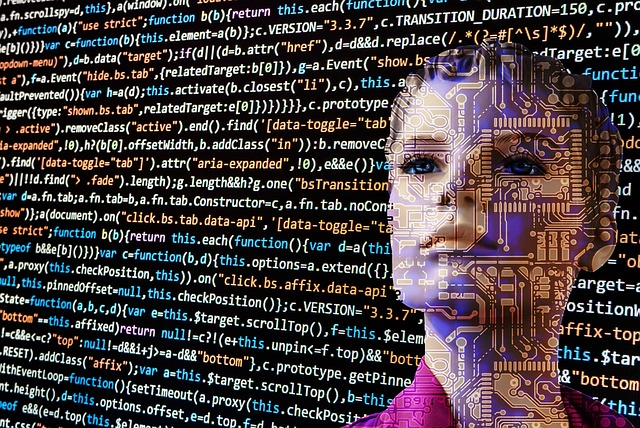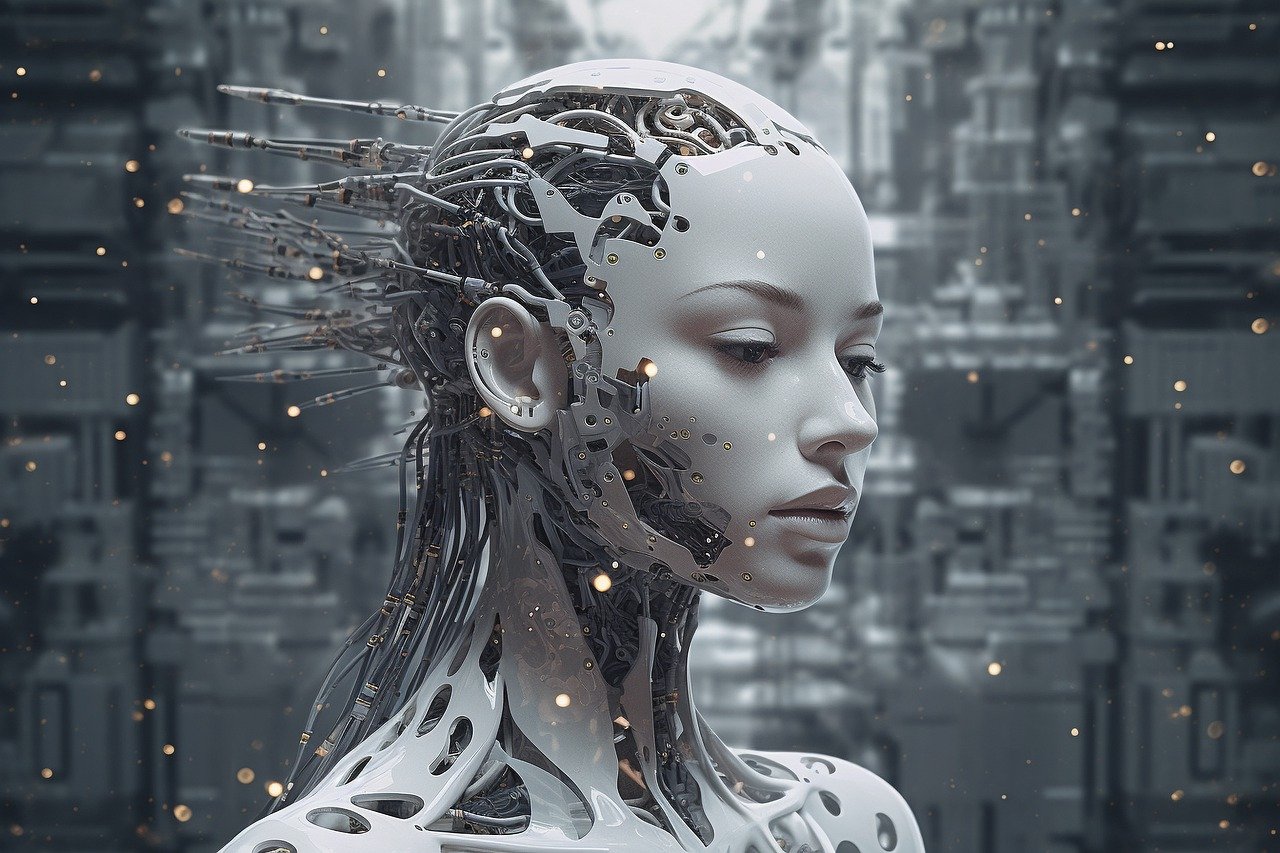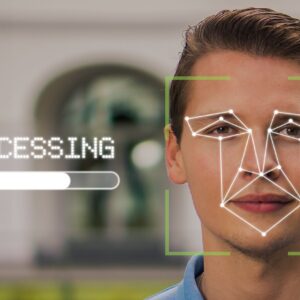Have you ever wondered how the rise of Artificial Intelligence (AI) will impact the job market? With the rapid advancements in technology, AI is becoming more prevalent in various industries. From self-driving cars to virtual personal assistants, it seems like AI is everywhere. However, the increasing use of AI also raises concerns about the future of jobs and the workforce. As AI continues to evolve and become more sophisticated, it has the potential to revolutionize the way we work. Some experts predict that AI will create new job opportunities and increase productivity, while others fear that it will lead to widespread job losses and economic instability. In this article, we will delve into the impact of AI on job markets and explore the potential benefits and risks associated with this emerging technology.
Understanding Artificial Intelligence (AI)
Get ready to learn about the amazing world of AI and how it’s revolutionizing the way we live and work! AI refers to the development of computer systems that are capable of performing tasks that would otherwise require human intelligence.
This includes things like recognizing speech, solving problems, and even driving cars. AI applications are already being used in a wide range of industries, from healthcare to finance and beyond.
Despite the many advantages of AI, it’s important to recognize that there are also limitations to what it can do. For example, while AI can be incredibly accurate at recognizing patterns and making predictions, it still struggles with tasks that require common sense or intuition.
Additionally, there are concerns about the impact of AI on job markets, as many workers worry that the technology will replace human workers. However, it’s worth noting that AI can also create new job opportunities, particularly in fields like data science and programming.
The Potential of AI in Various Industries
You may be surprised to learn just how much AI can transform the way industries like healthcare, finance, and transportation operate. With AI advancements and innovation, businesses can streamline processes, reduce errors, and improve overall productivity.

For example, in healthcare, AI can analyze medical data and assist healthcare professionals in making more accurate diagnoses and treatment plans. This can lead to better patient outcomes, reduced costs, and improved efficiency.
In finance, AI can be used to automate tasks like fraud detection and risk assessment, allowing financial institutions to operate more efficiently and effectively.
And in transportation, AI can help optimize routes and schedules, reducing delivery times and improving customer satisfaction. All of these improvements can have a significant impact on economic growth, making AI’s potential impact on various industries a topic of great interest and importance.
The Impact of AI on the Workforce
Are you ready to discover how AI will revolutionize the way we work and shape the future of our careers? AI has the potential to transform the workforce by automating repetitive and mundane tasks while augmenting human capabilities to increase productivity and efficiency. However, there are concerns that AI will replace human jobs, leading to a skills mismatch and unemployment.
Automation refers to the use of AI to replace human labor in tasks that are repetitive and require little cognitive ability. This can lead to cost savings for companies, but also job loss for workers.
On the other hand, augmentation refers to the use of AI to enhance human capabilities, such as decision-making and problem-solving. This can lead to increased productivity and job satisfaction for workers.
It is important to recognize that AI is not a one-size-fits-all solution, and companies must consider the specific tasks and goals of their workforce when implementing AI technologies. Additionally, it’s crucial for workers to develop skills that complement AI technologies, such as creativity, emotional intelligence, and critical thinking, to avoid a skills mismatch and remain competitive in the job market.
Job Losses and New Job Opportunities
What new roles and industries will emerge as AI continues to reshape the way we work and interact with technology? According to a report by McKinsey Global Institute, AI has the potential to create new job opportunities in fields such as healthcare, education, and entertainment.
For example, AI-powered robots can assist doctors and nurses in patient care, while virtual reality technology can enhance the learning experience for students. In addition, the rise of e-sports and streaming platforms has created a demand for video game designers and content creators.
However, as AI automates certain tasks, there is also the potential for job losses in industries such as manufacturing and transportation. To address this issue, potential solutions include reskilling and upskilling programs for workers to transition into new roles.
Government policies can also play a role in encouraging the adoption of AI while ensuring job security for workers. For example, the European Union has proposed a ‘Right to Disconnect’ policy that allows employees to disconnect from work-related technology outside of working hours, promoting work-life balance and reducing the potential for job burnout.
The Importance of Upskilling and Reskilling
It’s crucial to continuously improve our skills and adapt to new technologies in order to stay competitive in a rapidly evolving workforce. Future proofing skills has become a necessity in a world where AI is enabling machines to perform many tasks that were previously done by humans.
In fact, according to a report by McKinsey, up to 375 million workers may need to switch occupations or acquire new skills by 2030 due to automation. This means that lifelong learning has become more important than ever before.
Individuals who are willing to upskill and reskill will be better equipped to navigate a changing job market. Upskilling refers to improving existing skills, while reskilling involves learning new ones. By investing in these activities, workers can stay relevant and avoid being replaced by machines.
Moreover, they can also take advantage of new job opportunities that are emerging with the growth of AI.
Ethical Considerations of AI in Job Markets
As we navigate the ever-changing landscape of work, we must also consider the moral and ethical implications of integrating advanced technology into our daily lives.
AI bias is one of the most pressing issues in this regard. AI systems are only as unbiased as the data they’re trained on. If the data used to train these systems is inherently biased, then the AI system will produce biased results. This can lead to unfair hiring practices, where certain groups are systematically excluded from job opportunities.
Privacy concerns are another major ethical consideration when it comes to AI in job markets. With the increasing use of AI in recruitment, companies can collect vast amounts of personal data on job candidates, including their social media activity and online behavior.
This raises concerns about how this data is being used and whether it’s being used ethically. Some worry that this data could be used to make decisions that aren’t based on merit, but rather on factors such as race, gender, or other personal attributes.
As AI becomes more prevalent in the job market, it’s essential that we address these ethical concerns and ensure that AI is used in a way that’s fair, transparent, and unbiased.
Mitigating Negative Effects of AI on Job Markets
Now that we’ve discussed the ethical considerations surrounding AI in job markets, it’s time to address the potential negative effects it can have.
As AI continues to advance, it’s becoming increasingly clear that it will replace some jobs altogether and change the nature of others. This can lead to economic disruption and job loss, particularly in industries that rely heavily on low-skilled workers.
However, there are ways to mitigate these negative effects. One solution is to invest in training programs that help workers acquire the skills needed for jobs that are less likely to be affected by AI. This can include training in areas such as data analysis, programming, and machine learning.
Another solution is for governments to implement policies that encourage companies to prioritize the well-being of their employees, rather than solely focusing on profits. This can include providing financial incentives for companies that invest in their workers’ skills and education, as well as regulations that ensure workers are not unfairly displaced by AI.
Ultimately, it will take a combination of government policies and private sector initiatives to ensure that the impact of AI on job markets is a positive one.
Frequently Asked Questions
How will AI impact the job market in developing countries?
If you’re living in a developing country, you may be wondering how AI will impact your job market. One potential positive effect is that it could lead to increased skill development and education initiatives.
As AI technology becomes more prevalent, there will likely be a greater demand for workers with specialized skills in areas such as data analysis and programming. This could lead to more opportunities for education and training programs to help workers acquire these skills.
However, it’s important to note that the impact of AI on job markets is complex and multifaceted, and there may also be negative effects such as job displacement and a widening skills gap.
It will be important for policymakers and businesses to work together to ensure that the benefits of AI are shared equitably and that workers are supported through any transitions.
What are the potential long-term effects of AI on the economy?
Imagine a world where machines are smarter than humans and can perform tasks with ease. This is the reality we face with the rise of artificial intelligence.
While AI has the potential to revolutionize industries and increase productivity, it also poses a threat to the economy. As AI becomes more advanced, it could replace jobs that were once done by humans, leading to a decrease in future job opportunities. This could result in a widening income inequality gap and economic instability.
It’s important for policymakers to consider the long-term effects of AI on the economy and develop strategies to mitigate these risks.
Will AI lead to a decrease in job satisfaction for workers?
If you’re concerned about job satisfaction in the age of AI, you’re not alone. Job automation is a growing trend, and it’s changing the way we work.
While some jobs will be eliminated, others will be transformed. The key to retaining employees in this new landscape is to focus on the human element. Companies that invest in their employees, providing training and opportunities for growth, will be more likely to retain their workforce.
Additionally, companies that prioritize work-life balance and employee well-being will see higher levels of job satisfaction. While AI may change the nature of work, it doesn’t have to lead to a decrease in job satisfaction.
By focusing on employee retention and well-being, companies can create a positive work environment that benefits both employees and the bottom line.
How can companies ensure that AI is being used ethically in the hiring process?
Are you looking to ensure that your company is using AI ethically in the hiring process?
Ethical considerations and bias prevention are essential factors to consider when implementing AI technology in recruitment. To prevent bias, it’s critical to establish diverse data sets and ensure that algorithms are not trained on data that perpetuates discrimination.
Additionally, it’s crucial to have a diverse team of individuals involved in the development and implementation of AI systems to avoid blind spots.
Companies must prioritize ethical and unbiased hiring practices to ensure that they are providing equal opportunities to all candidates, regardless of their background or characteristics.
Is it possible for AI to completely replace human workers in certain industries?
When considering the impact of AI on job markets, the debate often centers around the concept of automation versus augmentation. While AI has the potential to replace human workers in certain industries, it can also create new job opportunities through the development and maintenance of AI systems.
Job displacement is a concern, as AI-powered machines and software become more advanced and capable of performing tasks traditionally done by humans. However, it’s also important to recognize the potential for job creation in fields such as data science and AI research.
Ultimately, the impact of AI on job markets will depend on how it’s integrated and utilized in various industries.
Conclusion
In conclusion, the impact of AI on job markets is both complex and multifaceted. While job losses are inevitable in industries where AI is being implemented, it’s important to note that new job opportunities are emerging in other industries as well.
The key to staying relevant in this new landscape is upskilling and reskilling. Think of it like a game of chess, where each move requires strategic planning and foresight.
The ethical considerations surrounding AI in job markets also can’t be ignored. It’s important for companies and individuals alike to approach the implementation of AI with caution and to take steps to mitigate its negative effects on job markets.
By embracing the potential of AI and making conscious decisions about its implementation, we can work towards a future where humans and machines work together seamlessly.




